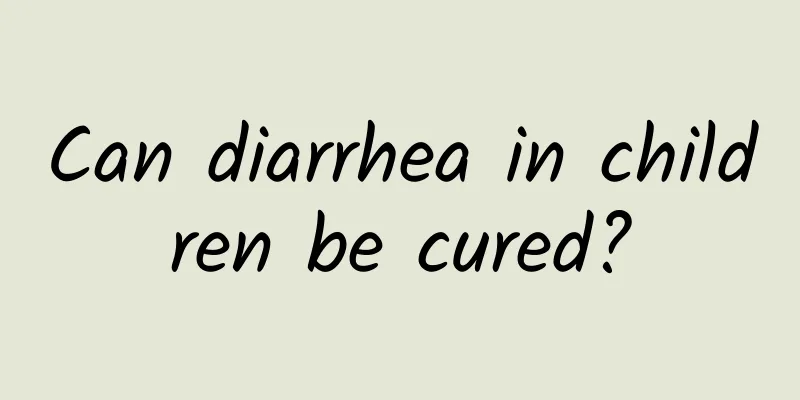Can diarrhea in children be cured?

|
Experts are explaining some of the causes of diarrhea in children. Compared to other diseases, diarrhea in children is quite good. Sometimes we don't want to get sick, but the disease comes. Compared to other diseases, diarrhea in children is easier to treat and will relapse faster. Come on, our babies and our mothers will definitely get better: 1. Breastfeeding can prevent diarrhea Breastfeeding should be especially adopted in the first few months after birth because breast milk is most suitable for infants' nutritional needs and digestive ability. Breast milk contains a variety of digestive enzymes and antibodies needed by children. Various nutrients are very suitable for children's digestion and absorption. It can neutralize Escherichia coli enterotoxins and prevent infection with Escherichia coli. It is much better than cow's milk and breast milk substitutes. Except for those suffering from tuberculosis, heart and kidney and other chronic diseases, breastfeeding should be promoted. Attention should be paid to the correct feeding method, regular breastfeeding, and avoid weaning in summer and when the child is sick. Breastfeeding can prevent diarrhea in children. 2. Use a bowl and spoon instead of a bottle Bottles, especially rubber nipples, are easily contaminated and difficult to clean and disinfect. They are easily contaminated and can cause diarrhea in children. Use a bowl or spoon instead, which has less chance of contamination than a bottle. 3. Timely fluid replenishment to prevent dehydration Most cases of diarrhea in children start very quickly. Frequent diarrhea can cause rapid loss of water and nutrients in the body, resulting in acute dehydration. At home, parents can add 20 grams of sugar (two level spoons) and 1.75 grams of salt (half a beer bottle cap) to 500 ml of boiled water (or rice soup) to make oral rehydration solution. Since children with diarrhea have a higher demand for fluids than usual, they should be encouraged to drink more at the beginning. Children under 2 years old can supplement with 50 to 100 ml of oral solution after each diarrhea, and the daily intake should not be less than 500 ml; those over 2 years old should drink as much as possible, with a daily intake of not less than 1000 ml or even more to prevent dehydration. If the child has symptoms of dehydration, he should go to the hospital immediately and continue to replenish oral fluids on the way. Diarrhea in children can be very serious for some people. Breastfeeding is a good way to prevent diarrhea in children. It is also a greater harm to children than other diseases. It is relatively better and good for us. |
<<: Necessary examinations for diarrhea in children
>>: How long does it take to cure diarrhea in children?
Recommend
What to pay attention to when treating pneumonia in children
For diseases like pediatric pneumonia, we parents...
What food should children eat after minimally invasive hernia surgery
After minimally invasive surgery for pediatric he...
What virus is polio?
Polio is caused by the polio virus, an acute infe...
What are the symptoms of eczema in a two-month-old baby? How to treat eczema in a two-month-old baby?
Many babies develop eczema on their faces shortly...
How to cure diarrhea in children
Although pediatric diarrhea is a common disease i...
Will tonsillitis in children cause fever? What are the dietary methods for treating tonsillitis?
What is the diet for children with tonsillitis? T...
Routine examination for pneumonia in children
There are many diseases in life, so people need t...
What medicine can adults take to reduce jaundice? Are Chinese and Western medicine effective in treating jaundice?
If an adult has jaundice, then there must be some...
What medicine should children take for runny nose? Children can use these medicines for runny nose
Children often have runny noses in daily life, bu...
Why does neonatal jaundice occur repeatedly?
Why does neonatal jaundice occur repeatedly? Many...
How to treat breast milk jaundice? Some tips on the treatment of breast milk jaundice
Breast milk jaundice is a very common jaundice. W...
What is the difference between cerebral palsy and polio?
Poliomyelitis troubles many parents. Many patient...
What are the types of pneumonia in children? 6 ways to prevent baby pneumonia should be remembered
The healthy growth of the baby is what every pare...
What is the cause of high jaundice in newborns?
Neonatal jaundice may be caused by physiological ...
Early prevention measures for kidney disease in children
Early prevention measures for kidney disease in c...









